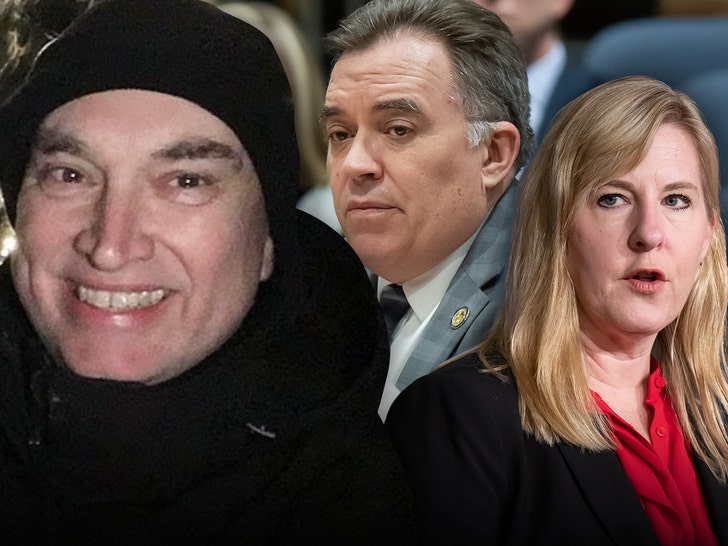One of the most popular original shows produced by the USA Network was “White Collar,” which ran for six seasons from 2009 to 2014. The show saw notorious con artist Neal Caffrey (Matt Bomer) agree to serve as a full-time consultant for the FBI in apprehending other white collar criminals. This leads to an unlikely partnership between Caffrey and FBI Special Agent Peter Burke (Tim DeKay), who reluctantly works with Caffrey in investigating crooks around New York City. “White Collar” quickly proved successful with audiences, with fans lauding the uneasy dynamic between Caffrey and Burke, while singling out Bomer’s standout performance.
With its relatively light-hearted tone and odd couple procedural partnership, “White Collar” has plenty of shows that feel similar to it. Many of these shows also aired on the USA Network, echoing its tone and production values, while some just focus on a mismatched pairing. Here are the 12 best TV shows like “White Collar” that fans should check out next.
Numbers
Often presented under the stylized title “Numb3rs,” the CBS series came as networks looked for fresh ways to approach the well-worn crime procedural genre. For “Numbers,” the series took a quantitative approach, with genius mathematician Charlie Eppes (David Krumholtz) using his skills to assist his brother Don (Rob Morrow) at the FBI. Charlie’s analytical insight constantly helps Don and his associates make breakthroughs on obtuse cases, usually around the Los Angeles area where Charlie works as a college professor. In addition to the procedural aspect of the show, the sibling dynamic between Charlie and Don is explored, as well as their relationship with their widowed father Alan (Judd Hirsch).
Like its protagonist, “Numbers” paid close attention to the details during its run, working with multiple mathematical consultants to ensure the quantitative aspect of the series was sound. The show itself is largely carried by the brotherly dynamic between Krumholtz and Morrow, particularly Krumholtz’s performance in communicating each episode’s mathematical content. The show would receive its own South Korean remake, successfully transposing its overarching premise and emphasis on math. A distinct take on the crime procedural without changing up the basic formula, “Numbers” offers an entertaining approach to familiar ground.
Psych
Predating similar narrative setups like “The Mentalist,” the 2006 USA Network series “Psych” offered its own buddy-cop twist. The show follows private detective Shawn Spencer (James Roday Rodriguez), who masks his prodigious observational skills and photographic memory by pretending to be a psychic. Along with his lifelong best friend Gus Guster (Dulé Hill), Shawn serves as a consultant to the Santa Barbara police, putting those finely honed skills to use. Shawn strikes up a romance with police detective Jules O’Hara (Maggie Lawson), while forming a begrudging friendship with her suspicious partner, Carlton Lassiter (Timothy Omundson).
Compared to the countless self-serious crime procedurals out there, “Psych” was always just a lot of fun, keeping the stakes real but Shawn and Gus’ antics playful. So much of the show’s appeal comes from the bubbly interplay and comedic chemistry shared by Rodriguez and Hill, something that only improves over time. Through its eight-season run, “Psych” would also release three continuation movies that reunited the main cast for further adventures. The best episodes of “Psych” expertly combined crime procedurals with wacky laughs, making it a delightfully light-hearted take on the genre.
Burn Notice
The 2007 series “Burn Notice” puts a unique spin on the world of espionage, particularly operatives who are burned, or unceremoniously dismissed, from active duty. Professional spy Michael Westen (Jeffrey Donovan) is burned while on a mission in Nigeria, taking refuge in his hometown of Miami. While reconnecting with his friends and family, Westen investigates who was behind the burn notice and how he can clear his reputation. To support himself in the interim, Westen becomes an informal private investigator, using his intelligence background to help people around Miami.
Like many shows on the USA Network, “Burn Notice” has a quirky sense of humor that keeps its tone relatively light, even for an espionage-oriented premise. One underlying trope throughout the series has Westen providing tips and tricks of the trade he learned from his experiences, giving the show an oddly informative angle. Between this and a genuine sense of narrative progression, “Burn Notice” offers its own twist on the world of spycraft. Running for seven seasons, the series is a fun take on cloak-and-dagger stories, in contrast to more dour clandestine ones.
The Mentalist
Yes, “Psych” may have beaten “The Mentalist” to the punch by a couple years, but the 2008 CBS series is still a distinctly good time. This show centers on con artist Patrick Jane (Simon Baker), who pretended to be a psychic to great financial success around Sacramento. In reality, Jane uses various tricks of his fraudulent trade to read and manipulate people, serving as an independent consultant to the police after his wife and daughter are murdered. This pairs Baker with police detective Teresa Lisbon (Robin Tunney), with Jane primarily interested in solving serial killer cases like the one that impacted him and his family.
So much of “The Mentalist” relies on Baker’s enthusiastic charm and his natural chemistry with Tunney over the course of the series. Fortunately, Baker has plenty of charisma to spare, with the show running for over 150 episodes across seven seasons. Though comparable to “Psych” in broad premise, “The Mentalist” does generally take its characters and stories more seriously, especially given Jane’s tragic background. A lightweight and breezy procedural with magnetic leads, the series was a well-deserved staple on CBS for years.
Leverage
Whereas “White Collar” focused on one reformed criminal putting their skills to use for good, the 2008 series “Leverage” expanded that premise to an entire team. Team leader Nathan Ford (Timothy Hutton) becomes disillusioned after losing his son to an unscrupulous insurance company that fails to intervene and doesn’t cover his medical bills. Assembling a crack team of illicit specialists, Ford turns the tables on corporate malfeasance and predatory wealthy figures around the country. These activities avenge the less privileged preyed upon by these corrupt entities, with each member of Ford’s team putting their special skills to good use.
Like “White Collar,” most of “Leverage” resolves its particular cases within a single episode as Ford’s team successfully takes down another malicious figure. Each of the ensemble cast plays their role to the hilt, with Aldis Hodge and Christian Kane as the show’s biggest standouts. There are overarching plot threads that keep the series connected, while also fueling a greater sense of emotional investment. “Leverage” received a revival series in 2020, “Leverage: Redemption,” but its original run best captures the premise’s appeal.
Lie to Me
After appearing in numerous movies, most notably projects helmed by filmmaker Quentin Tarantino, character actor Tim Roth pivoted to network television with the 2009 series “Lie to Me.” Roth starred as Dr. Cal Lightman, a leading expert in body language and applied psychology, using both to read others on an intuitive level. Lightman leads a team that is frequently hired by outside clients — often law enforcement organizations — to read microexpressions and determine if persons of interest are lying. As Lightman and his ensemble put their skills to use, he balances his messy personal life, including sharing custody of his teenage daughter Emily (Hayley McFarland).
While “Lie to Me” has all the familiar trappings of a network procedural on its surface, its premise and Roth’s leading performance help set it apart. Running for three seasons, the show never really outstayed its welcome and goes deeper with its subject matter than its contemporaries. A lot of that depth comes from the fact that while Lightman is an expert at what he does, that doesn’t improve how he handles his regular interpersonal relationships. Consistently entertaining and offering a nice, juicy role for Roth, “Lie to Me” breathes new life into the procedural formula.
Castle
When it comes to playing a fan-favorite everyman, there are few actors who do it better than Nathan Fillion. On the 2009 ABC series “Castle,” Fillion puts those acting strengths to life playing author-turned-police-consultant Richard Castle. Brought in by the New York City Police Department to assist them in tracking down a copycat killer using his novels for inspiration, Castle becomes a fixture on the force. Though police detective Kate Beckett (Stana Katic) is resistant to the NYPD working so closely with a civilian, she and Castle form an effective team and eventual couple.
Though the crime procedural aspect of the show is what brings “Castle” together, it’s the chemistry between its leads that serves as its core appeal. Fillion and Katic perfectly complement each other, with the show working even after it ditches the usual will-they/won’t-they dynamic. The crimes themselves offer the weekly tension and sense of stakes, but the show is essentially about Castle and the people closest to him. Throughout its eight-season run, “Castle” was warm, crime procedural comfort viewing.
Royal Pains
Just as “White Collar” gives the crime procedural genre an unlikely protagonist pairing, the USA Network series “Royal Pains” provides its own take on medical dramas. Premiering in 2009, the series stars Mark Feuerstein as Hank Lawson, an unfairly discredited surgeon in New York. While visiting the Hamptons, Lawson saves the life of a wealthy resident, who convinces him to stay on as his private doctor in his mansion. In addition to helping other wealthy clients around Long Island, Lawson often works as a pro bono physician for less privileged individuals around the community.
With its scenic setting, filmed on location on Long Island, and easygoing stakes, “Royal Pains” offers an alternative to the usual high-intensity medical dramas. Feuerstein is unassumingly charming playing the series’ lead, bringing a subtle approach to his performance as a medical genius. This is complemented by Paulo Costanzo playing Hank’s impulsive younger brother Evan, with the two playing off of each other well. A cozy medical drama with an engaging main cast taking advantage of its environment, “Royal Pains” is another solid show by the USA Network.
Covert Affairs
Picking up the espionage torch from “Alias,” albeit with a much lighter touch tonally, was the USA Network series “Covert Affairs.” Piper Perabo stars as Annie Walker, a CIA trainee who is quickly promoted to field operative, with Auggie Anderson (Christopher Gorham) as her handler. Across four seasons, Walker transforms from wide-eyed operative learning the ropes of clandestine work to a hardened professional taking on high-stakes missions without blinking an eye. Walker primarily works in the Domestic Protection Division of the CIA, often defending persons of interest around the world.
Even as the stakes change, there is still a gentle innocence to “Covert Affairs” throughout its run, especially in contrast to other espionage-oriented shows. The dynamic between Walker and Anderson forms the enduring rapport of the show, with Perabo and Gorham working together beautifully. It’s that dynamic that remains a constant source of appeal, especially when the show tries to take on a harder edge in its later seasons. But even then, “Covert Affairs” proved that as a lightweight spy series, the genre doesn’t always have to be so gravely solemn.
Suits
The legal drama “Suits” has had a surprisingly robust history, both with its initial television broadcast run beginning in 2011 and its resurgence during the streaming era. The show has veteran New York attorney Harvey Specter (Gabriel Macht) take rookie lawyer Mike Ross (Patrick J. Adams) under his wing at his law firm. As Ross’ knowledge of the law and photographic memory prove invaluable to the firm, he and Specter conceal the fact that Ross lacks a law degree and bar certification. While Ross strikes up a romance with paralegal Rachel Zane (Meghan Markle), the cutthroat politics at the firm threaten to expose his secret.
As its title would suggest, “Suits” is stylishly cool, largely thanks to Macht’s performance as the supremely confident Specter. But even more than the rapport between Adams and Markle, the dynamic between Macht and Adams is electric, with the two forming a memorable duo. This pair stands at the head of a strong ensemble cast, with the interpersonal workplace drama as strong as the courtroom sequences. Having also inspired both a South Korean remake and a short-lived spin-off starring Stephen Amell, “Suits” is a thoroughly entertaining legal drama breathing fresh life into a familiar genre.
Elementary
The classic crime-solving pairing of Sherlock Holmes and John Watson gets a fresh reinvention with 2012’s “Elementary.” Set in present-day New York, the series has Holmes (Jonny Lee Miller) and Joan Watson (Lucy Liu) team up and assist the NYPD in their criminal investigations. In this iteration, Holmes is a recovering drug addict, with Watson assisting with his recovery, in addition to working as his partner. Among the familiar literary characters that appear throughout the series are Holmes’ brother Mycroft (Rhys Ifans) and his recurring nemesis Moriarty (Natalie Dormer).
“Elementary” is the boldest reimagining of Sir Arthur Conan Doyle’s legendary master detective, not just updating the time period but also its major characters. And while these creative liberties may cause literary purists to raise their eyebrows, the changes work and stay largely true to the spirit of the key literary players. The show ran for seven seasons and over 150 episodes, making Miller the actor who has portrayed Sherlock Holmes the most to date. Powered by a strong on-screen partnership between Miller and Liu, “Elementary” gives Holmes a distinctly contemporary American spin.
The Blacklist
For 10 seasons, actor James Spader led the crime thriller series “The Blacklist,” playing the notorious master criminal Raymond “Red” Reddington. On the FBI’s most wanted list for years, Reddington surrenders himself at the start of the show with a unique proposition to the authorities. In exchange for his immunity, Reddington agrees to work with the feds in tracking down all his former terrorist and criminal associates, who are privately on his blacklist. As part of this agreement, Reddington works closely with FBI Special Agent Liz Keen (Megan Boone), a rookie in whom he has a mysterious interest.
It really is Spader’s performance as Reddington that makes “The Blacklist” stand out from its other network television crime procedural contemporaries. Reddington is always a smug enigma for the majority of the show, before his true nature comes into focus in the final two seasons. Beyond Reddington, there are plenty of plot twists to keep audiences guessing how the story will unfold next for the central unhealthy partnership. As it boasts a darker crime-solving duo than “White Collar,” the dynamic on “The Blacklist” made for long-running compelling television.


